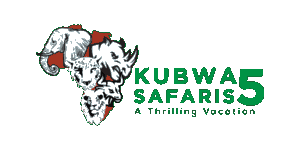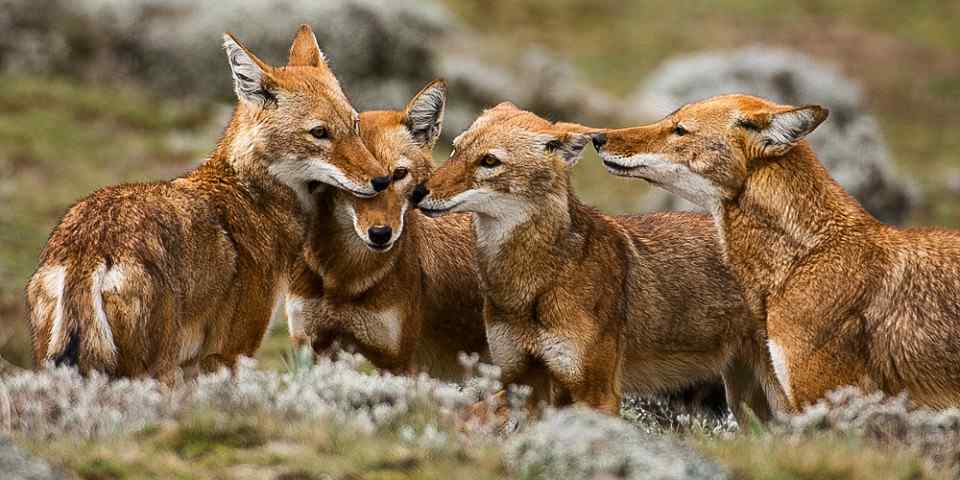A country like no other
I have been in Ethiopia as a touriste but also to see my family. This country is rich in wildlife but also in culture. You can go from north to the south and from east to west, the landscape is very diversified. The rift valley, the semen and bale mountains, and the green south of Ethiopia are worth seeing. You can find endemic wildlife in those areas and differents cultural activities "near" them. I remember my trip in 2008 in the bale park where I have done hiking on a horse in the middle of the wild animals. Concerning the weather, it depends on your trip, though you will have a hot summer or a rainy season not a cold winter. the nights can be a bit cold neverthless. For the accomadation part, you don't have to expect a very confortable stay on a budget, but there are a few tourist agency and hotels that are trying to make a better destination regarding transportation and hotelery. If you want to live an experience where you want to feel out of the place, Ethiopia is your destination.
A tale of two halves - serious birding on long dusty roads followed by stunning scenery and Geladas
Ethiopia is very much open for business. I felt safe throughout, despite the apparent chaos and sometimes (always non threatening) gun wielding men. At every check point we were waved through with a smile, whilst the locals were grilled. Yes, there are a few areas tourists are advised by their governments not to venture but then the same holds true for most countries.
Four weeks without illness or issue, not even a flat tyre, and just one mosquito bite. Oh, and it rained for 30 minutes one night. For accommodation lower your expectations - hotels are safe and clean but basic; electricity not always reliable. Clean linen, flush toilets and warm showers, even in the remotest towns. But it was a tough and tiring trip in the south where few venture except serious birders. Here the roads were in poor condition and crowded with wandering domestic animals. My first surprise was how the lack of persecution of birds has resulted in birds being unconcerned by people; resulting in superb views everywhere - a real pleasure that is so rare in much of the world today. My second surprise was the availability of free wifi in even the remotest hotels.
Bale Mountains were stunning until I ventured north and the real highlight of the trip - the 'Simeon' Mountains (as throughout Ethiopia various spellings exist!). Here you can sleep at 3300M asl after hiking during the day at 4300M asl. I even had a beer at apparently Africa's highest bar. Whilst the purpose of my trip was an organised bird watching tour (successfully!) focusing on seeing all of the 17 endemic species and most of the 42 Horn of Africa specialties, the final surprise was the huge mammal list we ended up with. I just had not appreciated how good Ethiopia is for mammals. Incredible and multiple views of hunting Ethiopian Wolves on the Bale Mountain plateau, Black-and-White Colobus monkeys, two species of Zebra, handsome Hartebeest, gorgeous Gerunuk, timid Oribi, stately Oryx, Gazelles galore, skulking Menelik and the magnificent Mountain Nyala all easy to see and un-perturbed by people. The latter being the last large African mammal discovered by modern man.
Saving the best to last, they talk about seeing Gorillas in Africa but right up there in terms of a one-on-one almost life changing experience is surely the Gelada Baboons of the Simeon Mountains. These extraordinary, peaceful, grass eating beauties allow you to sit within 1M of them and become one of their tribe. There are no time limits and no exorbitant fees. And there were hundreds of them going about their daily routines. Time flies invisibly when you are staring out at some of the world's most stunning escarpment scenery whilst pretending you are not a Gelada.
Finally do try the injera just to say you did so, but for me that "once" was enough.
Maybe safari is not the main motive for an Ethiopian trip.
Ethiopia is a country with millennia-old culture. A highlight are the 11 monolithic churches in Lalibela. At the same time, it is still one of the most original countries in Africa. But the roads are excellent, the hotel business is good and overall it is a country where you can feel comfortable. Those who travel along the Rift Valley can observe many birds, there are also smaller national parks with antelopes, ostriches, hippos and crocodiles. In the west of the country there are large national parks with all the impressive animals of East Africa. A hike to the Geladas in the Simien Mountains (Simien National Park) is highly recommended. The weather in November 2018 was mostly dry, but often cloudy due to the end of the rainy season. The temperatures are very pleasant, as Ethiopia is partly very high. The local food consists of flat bread (baked from the teff = dwarf millet) and various sauces, mostly made from legumes. Occasionally there is also pasta, lasagne, beef or mutton.
 US
US
Email Zach | 35-50 years of age | Experience level: first safari
Lake Ziway is a birder's paradise!
I visited Ethiopia for 10 days with my family. This was not our first trip to the country, but this was my first time to have some time dedicated to viewing wildlife. Ethiopia has a rainy and a dry season. Roads can be difficult to navigate during the rainy season (July - September). We were fortunate to travel during the dry season (March) this time around. I am an avid birder and photographer and I really enjoyed our 2 days at Lake Ziway. We didn't use a guide - we just hired someone to drive us from Addis Ababa to Lake Ziway (about 3.5 hours drive). Addis Ababa sits in the mountains but shortly after leaving Addis we descended to lower elevation into what is much more iconic African savannah scenery with Acacias and sparse scrubland.
We stayed at a resort along the shore of Lake Ziway which was fitting of the name. They have nice, clean accommodations, a good restaurant on site, a nice pool, manicured grounds, spa, etc. They can arrange a very inexpensive (US$6 per person) boat ride out on the lake to view hippos and "bird island," which is a forested island that serves as a rookery for cormorants and African Darters. The boat ride was just over an hour in length and we had great views of hippos at a close, but safe, distance. With a field guide and several hours walking along the shoreline of the lake you can easily see 100-150 species of birds. The sheer number of birds can be overwhelming at times. There is a paved walking trail that runs parallel to the shoreline that is good for birding, but you'll also want to get off the path and walk out onto the mud flats to get closer to the water and away from people. Most of the roads in Ziway are dirt and it is safe to walk about and talk to the locals. We saw very few tourists during our two days in Ziway. I think maybe a total of 3 Europeans and that was it.
All of the local restaurants and hotels serve Ethiopian food, which is delicious. Even during fasting seasons, which most Ethiopians observe, these restaurants have meat available for their guests. Several also have western food items, if you are so inclined. The Haile Resort has Grilled Nile Perch, which was delicious. We also visited a local fish market, which was little more than a lakeside fire ring and someone cooking fresh caught fish, which was really good and a fun experience. There are many Marabou Storks hanging out in this area, eager to eat your leftover fish bones, which you can toss to the birds.
 CA
CA
Email Stephane | 35-50 years of age | Experience level: over 5 safaris
The scenery in Ethiopia is just amazing !
The quality of guides in Ethiopia is amazing. I had very good experiences with most of my tours. The scenery of the north is just amazing : Tigray region, Danakil Depression. At Danakil, you will see landscapes you only on rare locations : salt desert, volcanoes, fumaroles,...You also go to Ethiopia for the people and the culture : the churches of Tigray on the high plateaux, the ones at Lalibela carved in rock, the people of Harar, the folk music and the jazz...
 ES
ES
Email Jorge | 20-35 years of age | Experience level: 2-5 safaris
Unique safari in an unique country
Safaris in Ethiopia are different to what to might expect: that is why you will probably end positively surprised. Parks are wilder, less crowded, more genuine. Landscapes in Ethiopia are superb, difficult to fully capture by even the best of cameras. If you add this to an exciting congregation of animals which make you feel they are freer -and happier- than other safaris you've been to, you get an authentic safari. Perhaps not as confortable, or even as safe, as others. But you will never forget this one.
 CA
CA
Email .sl. | 35-50 years of age | Experience level: over 5 safaris
You go to Ethiopia for people and culture. And what there's to see it's just amazing !
The quality of the guides in Ethiopia is really good. I did two tours with Magma Tours at Mekele at the Danakil Depression and Tigray mountains and they guides were really good. The same in Harar. The scenery at Danakil Depression is unique. There's landscapes you see in very rare places : salt desert, volcanoes, fumeroles, ...but you also go to Ethiopia for the people and the culture : the churches of Labibela craft in stone, the ones in Tigray at the top of mountains, the culture of Harar, the folk and jazz music, ....





















